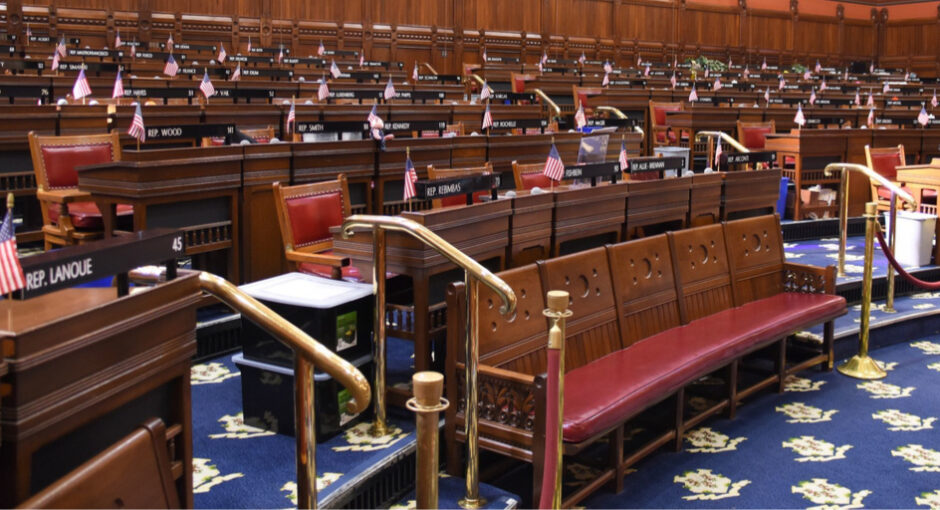Connecticut Gov. Ned Lamont’s novel bill to require hospital reporting on 340B revenue, prohibit drug maker restrictions on 340B contract pharmacy use, and prohibit pharmacy benefit manager discrimination against 340B entities and pharmacies has passed its first test in the state General Assembly.
The legislature’s Joint Committee on Public Health yesterday voted 25-12 to report HB 6669 favorably. It is not clear if the bill requires referral to and action by another committee or will move straight to a vote in the full House.
Lamont’s bill would require Connecticut 340B hospitals to start filing annual reports disclosing their 340B drug revenues and summarizing how they use the money to benefit their communities. Health centers and other 340B grantee covered entities would be exempt from the reporting.
HB 6669 also would bar drug manufacturers from limiting use of contract pharmacies and imposing other conditions on 340B drug sales. It also would prohibit multiple types of pharmacy benefit manager discrimination against 340B entities.
Outside of the 340B program, Lamont’s bill would:
- eliminate hospital outpatient facility fees charged at free-standing offices and clinics
- have Connecticut join a multistate bulk purchasing consortium to negotiate drug discounts that all state residents would access through a discount card
- publish an annual list of drugs with major price spikes
- “rein in aggressive marketing practices by pharmaceutical representatives.”
The bill is noteworthy nationally for a few reasons: (1) Lamont is a Democrat, and generally speaking it is uncommon for Democrats to back policy that is painful to 340B safety-net providers, in this case hospitals. (2) The bill’s formula of protection for contract pharmacy arrangements + protection from PBM discrimination + more accountability from hospitals resembles the basic framework of PhRMA and NACHC’s joint 10-point plan to reform 340B at the federal level, even though PhRMA and NACHC’s plan would be more punitive toward hospitals. (3) Connecticut perhaps more than any state has been in the vanguard of opposition to drug manufacturer conditions on 340B pricing when drugs are shipped to contract pharmacies.
Connecticut State Attorney General’s Key Role
Connecticut Attorney General William Tong (D) has been particularly active in the contract pharmacy fight nationally. Last May, he led a group of 25 states backing the federal government in litigation before two federal appeals courts over drug manufacturers’ denials of 340B pricing when covered entities use contract pharmacies.
In December 2020, Tong along with then California Attorney General Xavier Becerra (D) and two Republican attorneys general spearheaded a letter from 28 state AGs to President Trump’s Health and Human Services Secretary Alex Azar urging HHS to take enforcement actions against drug manufacturers for placing restrictions on contract pharmacy arrangements. Becerra succeeded Azar as HHS secretary.
Tong submitted written testimony supporting HB 6669 for the March 13 House committee hearing on the bill. Tong backed not just the bill’s contract pharmacy and PBM anti-discrimination provisions, but also its 340B hospital reporting requirements.
“This reporting enhances the important goal of drug price transparency to ensure that that populations and communities served by safety-net hospitals continue to benefit from this essential federal program,” Tong said.


